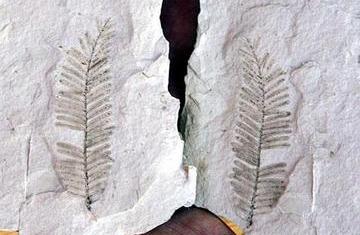
Above: Scientists in Ethiopia have unearthed 22-million-year-
old fossils that can provide a unique key to an uncharted past.
Voice of America
24 October 2010
Addis Ababa
Scientists in Ethiopia have unearthed 22-million-year-old fossils, fauna and flora, completing a chain of data that could shed light on the phenomenon of climate change.
The latest discovery was made in an ancient lake bed 150 kilometers northeast of the Ethiopian capital. It is not the oldest find of amphibian, mammal and fish fossils in Africa. But principal investigator Mulugeta Feseha, a geologist at Addis Ababa University, says it completes a picture of climatic conditions over a 30-million-year period.
“This is a unique aspect of Ethiopian geology that can contribute towards modeling of ancient climate or environmental reconstruction. When we think of developing a model we have to find sites that are 28 million, 25 million, 20, 10 up to zero. That is how you develop a model. So this 22-million-year-old fossil site fills a gap that has never been identified in all parts of Africa.”
Mulugeta says since there were no humans on earth 20- to 30-million years ago, comparing carbon-dioxide levels between then and now will help in understanding to what extent human activity affects climate change. Read more at VOA.

























